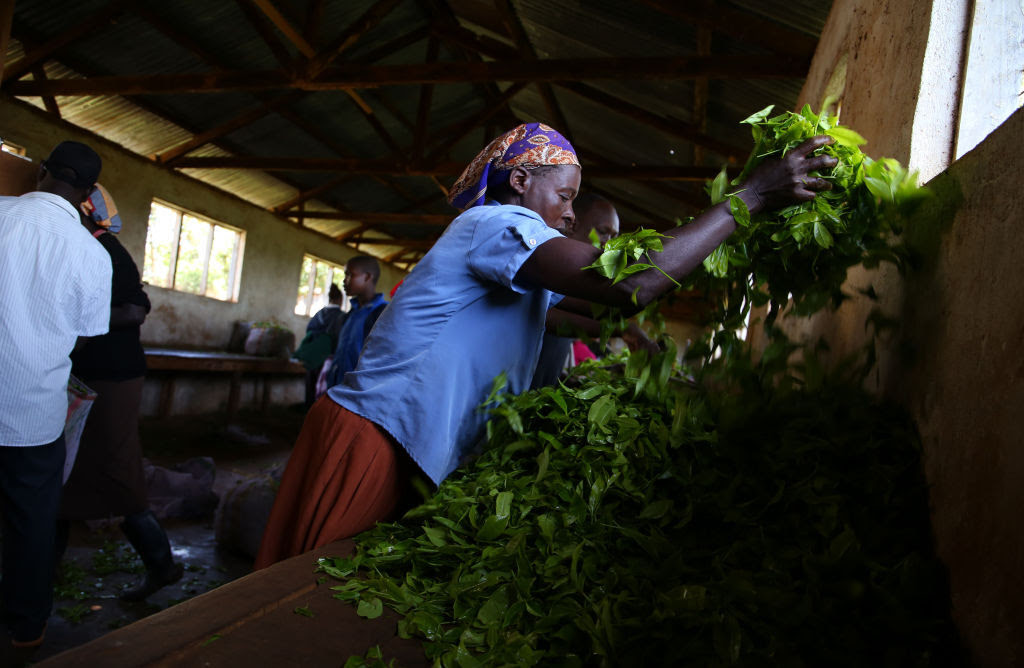This September, I went on a field trip to Kericho, a major tea-harvesting region south-west of Nairobi, to report on the impact of automation on women tea pickers.
It was a story that struck a chord with the Kenyan public. Just a few months earlier, protesting tea workers had burned down nine Ekattera tea-picking machines worth $1.2 million. Sadly, these protests turned violent when police intervened, leaving two dead and dozens injured.
But it wasn’t just the tragic loss of life that made this story resonate in Kenya. It was also because 30,000 female tea pickers had lost their jobs because of automation in the past five years, leaving these poor women, often from rural areas, highly vulnerable.
Some had even turned to the sex trade to make ends meet. Last year, the BBC had broadcast a very disturbing investigation into sex for work on these same plantations in Kericho, showing how male supervisors often took advantage of these women’s desperation.
I wanted to find out how these women were coping with both the loss of their livelihoods, and to explore the threat that automation continued to pose to those still working in the tea sector.
Our story, published last weekend in Foreign Policy, was about how experts are predicting that women are more likely to lose jobs than men in the current wave of automation. With generative artificial intelligence applications like ChatGPT exploding into public consciousness over the past year, there has been much discussion about the threat it will pose to those working in white-collar jobs. We wanted to take a look at this problem, but from a wider perspective — showing that in countries like Kenya and Bangladesh, automation has already been chipping away at women’s jobs for years.
Automation in agriculture has become a big topic of debate in Kenya. This is not only because of the massive job losses it is causing, but also because of the growing disparity between the skills the workers have and the skills the companies need in a more automated future.
This was also my first assignment after joining The Fuller Project in September. Kericho is Kenya’s tea-growing hub, largely because of its year-round cold weather. Arriving here brought back a flood of memories from my childhood.
Growing up, my parents would herd us onto long-distance buses for the occasional trip to visit our uncles in Nairobi from our village in Siaya County, near the border with Uganda. As the bus made its way through Kericho’s winding valleys and hills, the picturesque tea farms would always delight us.
Waiting for me in Kericho was tea worker Rose Nyunja. She had also asked her former colleagues who still pick tea on the plantations to join us at Kericho market, where she now sells vegetables. Unfortunately, most of them were unable to make it as heavy rain that afternoon caused them to change their plans and return home to attend to other duties.
As my interview with the women who did turn up progressed, I couldn’t help but notice that in the two hours we chatted, not a single customer turned up. Presumably they were deterred by the rain that continued to pound down.
This was also a moment of revelation for me: How these women’s lives depended on favorable weather to make ends meet, in a region that experiences rainfall nine months of the year. Their harsh reality was beginning to sink in.
“So how do you make ends meet in this weather?” I asked Rose.
I could see her struggle for an answer.
For these women, having a steady source of income from the tea industry had been a godsend. Those who lost their jobs saw their lives take a turn for the worse. For Rose and her peers, hawking is the only alternative, and they struggle to feed their families on the meager income it brings.
“But isn’t it better than picking tea?” I asked.
“Unfortunately, it is not,” said Rose. “As a tea picker, I had a roof over my head, provided by my employer. I was also guaranteed a certain amount of money at the end of the month, which I used to feed, clothe and send my children to school.”
Now, out of work and depending on menial jobs, their future is looking bleak.
“Look, no one has stopped here to buy my vegetables. How is that better?” she says while pointing at her neatly arranged vegetables. “What I have now is like gambling.”



